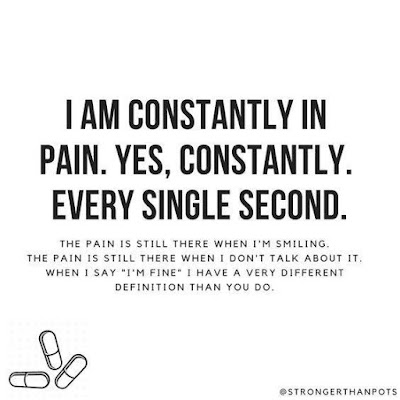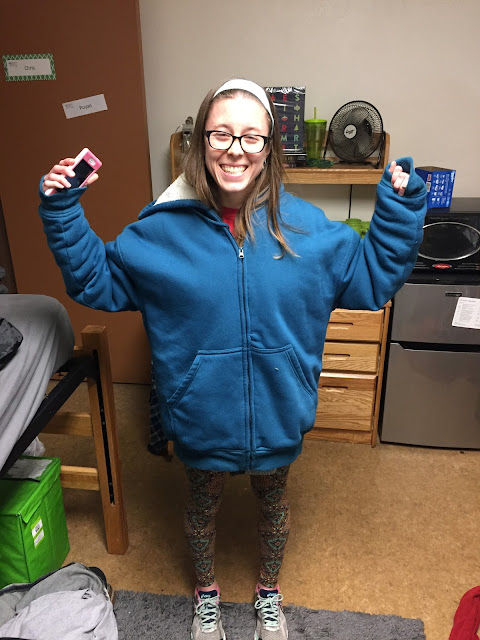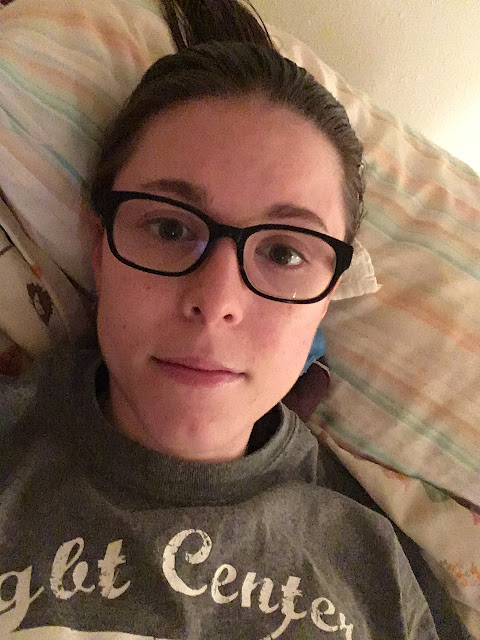What I Want Doctors to Know About Fibromyalgia That's Not in a Textbook
New blog post! As I’m writing this post, I’m going through a fibromyalgia flare up, so it only seemed fitting to cover a topic I’ve been thinking a lot about lately: what I wish more doctors (not to mention the general public) knew about fibromyalgia that can’t be found in a textbook or most Google pages.
Because the truth is, everyone with a chronic illness is different…and that is true of people with fibromyalgia. Equally important, there are nuances of living with fibromyalgia that can’t be found in medical textbooks…and therefore aren’t being told to most doctors-in-training.
I’ve been fortunate to have a decent amount of OK experiences with doctors while making medical visits related to fibromyalgia…but I’ve also heard comments from medical professionals that made me feel even worse about my chronic pain. So in hopes of educating others - and particularly, educating those entering the medical field - here are seven things I want future doctors to know about fibromyaliga that aren’t in a textbook.
1. I’m used to telling my fibromyalgia story over and over, so let me know if I’m going too quickly and need to include more detail.
2. Because I live with fibromyalgia every day, I sometimes don’t know a certain symptom isn’t “normal.”
3. I may be able to do more or less than another patient of yours with fibromyalgia…but that doesn’t make either of our conditions “more real.”
4. My pain and symptoms can change drastically between days or hours, and sometimes there is no clear “trigger” I can point to.
5. And I understand that you need to ask questions to learn what triggers my flares, but sometimes it can feel like I’m being told my flares are my “fault” and something that I caused.
6. Placing my pain on a traditional pain scale isn’t easy because I’m not sure I even know what “pain free” feels like.
So I will totally do that when asked…but understand that it’s somewhat of a guess.7. Fibromyalgia affects my mental health, too…and I appreciate when doctors ask how I’m doing mentally instead of just physically.
8. Yes, I know I am “young” to be diagnosed with fibromyalgia…but that doesn’t make my pain less real.
(Read more about my fibromyalgia diagnosis story here.)
9. A lot of times (maybe even most times), I don’t come to an appointment looking for answers.
I know that fibromyalgia is a chronic illness, and I accept that there isn’t a “cure” right now. But I am always looking for empathy and respect.10. Please don’t say that you “understand” unless you have chronic pain.
You can know the symptoms of fibromyalgia, but unless you have it, you can’t “understand” how it feels. And I get that you are trying to emphasize with me, but statements like, “That must be difficult” are more helpful for me. |
| Source |
11. Even though you may not be able to “cure” my pain, it does make a difference when you treat me like a “regular” patient.
It matters that you treat my invisible illness with the same seriousness as a physical disease.It matters that you ask about my physical and mental wellbeing.
It matters that you respect the knowledge I have about my own body just like I respect your knowledge as a doctor.
What I Hope You Take Away From This Post
If you have fibromyalgia, I hope that this post made you feel less alone and maybe even gave you a different perspective on what emotions may run through you during doctor’s visits.
And if you don’t have fibromyalgia - and especially if you’re planning on going into the medical field or are already in it - I hope this post gave you some extra insight into what living with fibromyalgia is really like and the kind of support we actually need from medical providers.
I’ve worked with some amazingly knowledgeable and respectful doctors in my time…and I hope that one day, those doctors are the norm.
What is one thing you wish more medical professionals knew? Tell me in the comments!
And if you don’t have fibromyalgia - and especially if you’re planning on going into the medical field or are already in it - I hope this post gave you some extra insight into what living with fibromyalgia is really like and the kind of support we actually need from medical providers.
 |
| Me from around the age of my fibromyalgia diagnosis… |
I’ve worked with some amazingly knowledgeable and respectful doctors in my time…and I hope that one day, those doctors are the norm.
What is one thing you wish more medical professionals knew? Tell me in the comments!
via Blogger https://ift.tt/2RML8ac
from Random Scribbles https://ift.tt/2GJVVvz
via IFTTT



Comments
Post a Comment